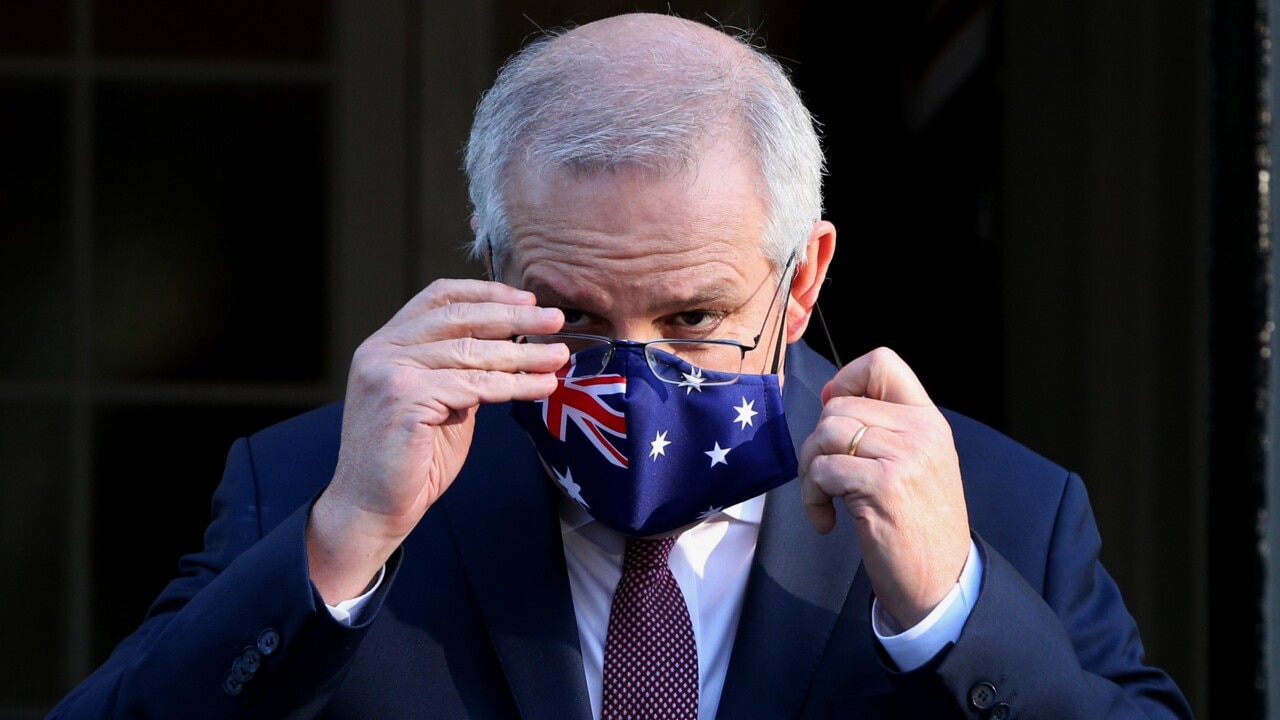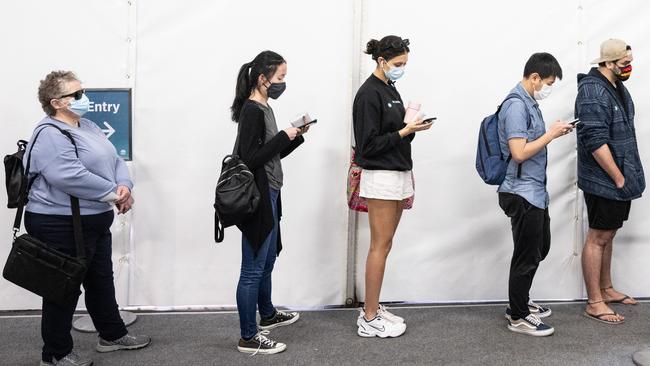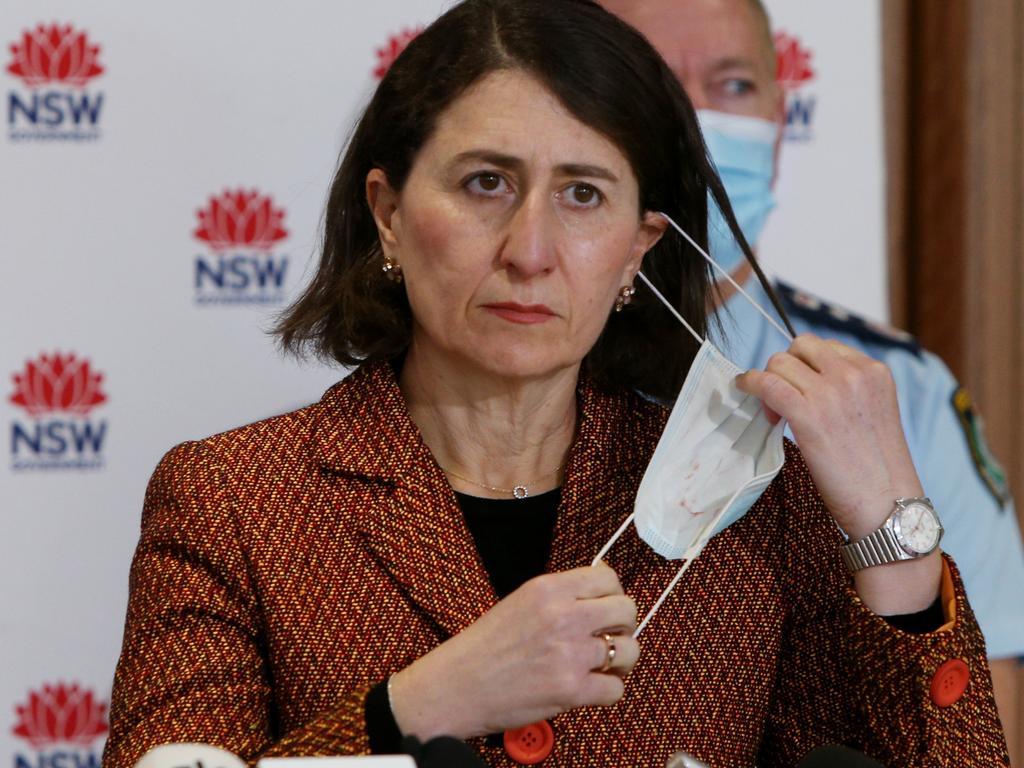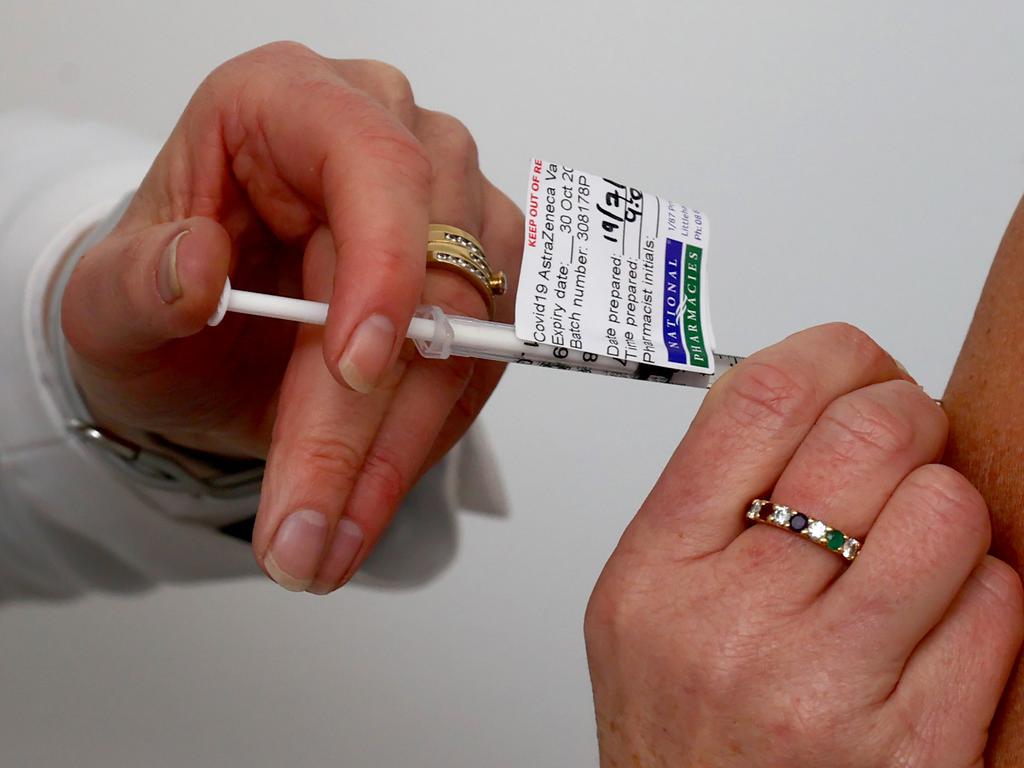
The federal government set an October deadline for vaccinating adults. Thanks to delays in supply and the shunning of the AstraZeneca vaccine, it will not be met by a long shot. As three states returned to lockdown last week, the Prime Minister apologised for the slow pace of the rollout and urged people who were not in high-risk groups to take whatever vaccine was available. It put him at odds with the Australian Technical Advisory Group on Immunisation that favoured the Pfizer vaccine, but signalled the PM was ready to drag the nation out of Covid limbo.
The highly contagious Delta variant has increased public willingness to get vaccinated, but Australians are still hesitating to take the AstraZeneca shot. I was discouraged from taking it at a vaccination clinic in South Australia this week, but was permitted after explaining the Pfizer vaccine has been associated with rare cases of myocarditis, a condition that runs in my family.

At the NSW government’s vaccination hub last Wednesday, medics delivered 9000 Pfizer jabs but only 50 AstraZeneca vaccinations. NSW Health Minister Brad Hazzard lamented the low uptake, describing it as a “shocker” and laying responsibility on ATAGI’s advice to the federal government. The advisory group finally changed its advice on Saturday, recommending: “All individuals aged 18 years and above in Greater Sydney, including adults under 60 years of age, should strongly consider getting vaccinated with any available vaccine including Covid-19 vaccine AstraZeneca.”
While government and medical groups have made errors in the vaccine rollout, Australians need to take their share of the blame. Thousands of vaccines are going to waste as people refuse AstraZeneca, or shun vaccines altogether despite the state of emergency in NSW and lockdowns elsewhere.
Earlier in the year, the media mocked vaccine refusers who were presented as white, middle-class nativists turning a profit from paleo food and fake cures. Yet when the refuseniks were found in high immigrant areas around Sydney, the political-media class has changed its tune. We are expected to indulge these groups turning their noses up at the AstraZeneca vaccine and holding the nation hostage to demands for Pfizer.
In a press conference with the PM, a journalist suggested the government supply more Pfizer vaccines, noting people were angry on social media because they could not access their preferred brand. Apparently “women over the age of 60” were especially miffed and writing “I don’t want AstraZeneca, I want Pfizer”. The sense of entitlement beggars belief.
I have relatives with multiple auto-immune disorders and life-threatening conditions who have lined up for the AstraZeneca jab. Their ages range from 48 to 89 and, like millions of Australians, they experienced nothing more than a slight fever and fatigue after the vaccine. If they can muster the enthusiasm to be grateful for a free vaccination program that protects Australians from Covid, we can too.

These vaccine refuseniks must bear the burden of shunning free vaccination in the middle of a pandemic. The Covid vaccine is not a designer drug and mass vaccination programs are not an haute couture brand war. They are rolled out to protect individuals and society. Every Australian takes a risk when they take the Covid jab. But the risk is calculated, relative and generally preferable to facing the coronavirus unprotected.
While the choice to be vaccinated is personal, mass vaccination is a public good. The greater the rate of immunisation, the less chance a virus has of mutating into more harmful forms. The risk of not getting the vaccine is far greater to individuals and the wider community. Apart from rare instances where medical history makes one vaccine preferable to another, people should take whatever is on offer at their local clinic.
Low vaccine uptake comes at a high cost. The latest round of lockdowns is costing about $300m a week. And there are hidden costs to contemplate. Speaking to SBS, Lifeline chairman John Brogden said the lockdowns in three states have resulted in a record number of calls to the mental health helpline. He sympathised with the difficulty of managing the virus, but said “people are yearning for a clear level of certainty about the future”.
Having a sense of personal empowerment and control is vital to human health and the stability of democratic society. It is important for governments to provide greater certainty about when Australians can resume normal life. One way forward would be for government to set a population vaccination target after which lockdowns will not be imposed. The federal government should advise states on the target and set a cut-off date for vaccination based on the supply of vaccines.
Where states choose not to use allocated vaccines – as in the case of NSW rejecting AstraZeneca – they will incur the costs of subsequent restrictions. Where individuals choose not to be vaccinated and subsequently become ill from Covid, they will cover all costs related to it. Freedom of choice must be respected in Australia, but choices have consequences and part of being a democratic citizen is learning the balance between rights and responsibilities.
Whatever risks there are surrounding Covid, they pale in comparison to those faced by our forebears who built the nation, braved pestilence, plague and grinding poverty, took up arms in two world wars and safeguarded our future by putting theirs on the line. So get some perspective on the vaccine and get the shot.








Australians are rattling the cage doors as government-mandated lockdowns become the default policy in response to Covid outbreaks. Weekend protests across the eastern seaboard show how a wicked mix of anti-government and anti-vax sentiment are making a mockery of Covid containment efforts. The frustration is made more acute by the negative campaign against the AstraZeneca vaccine that has resulted in thousands of doses going unused even as low vaccination rates prolong lockdowns.